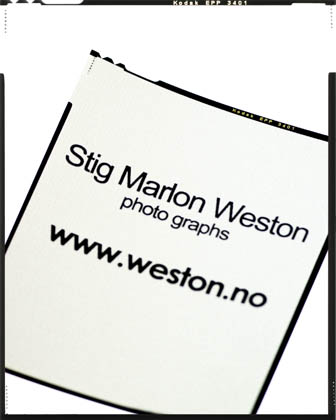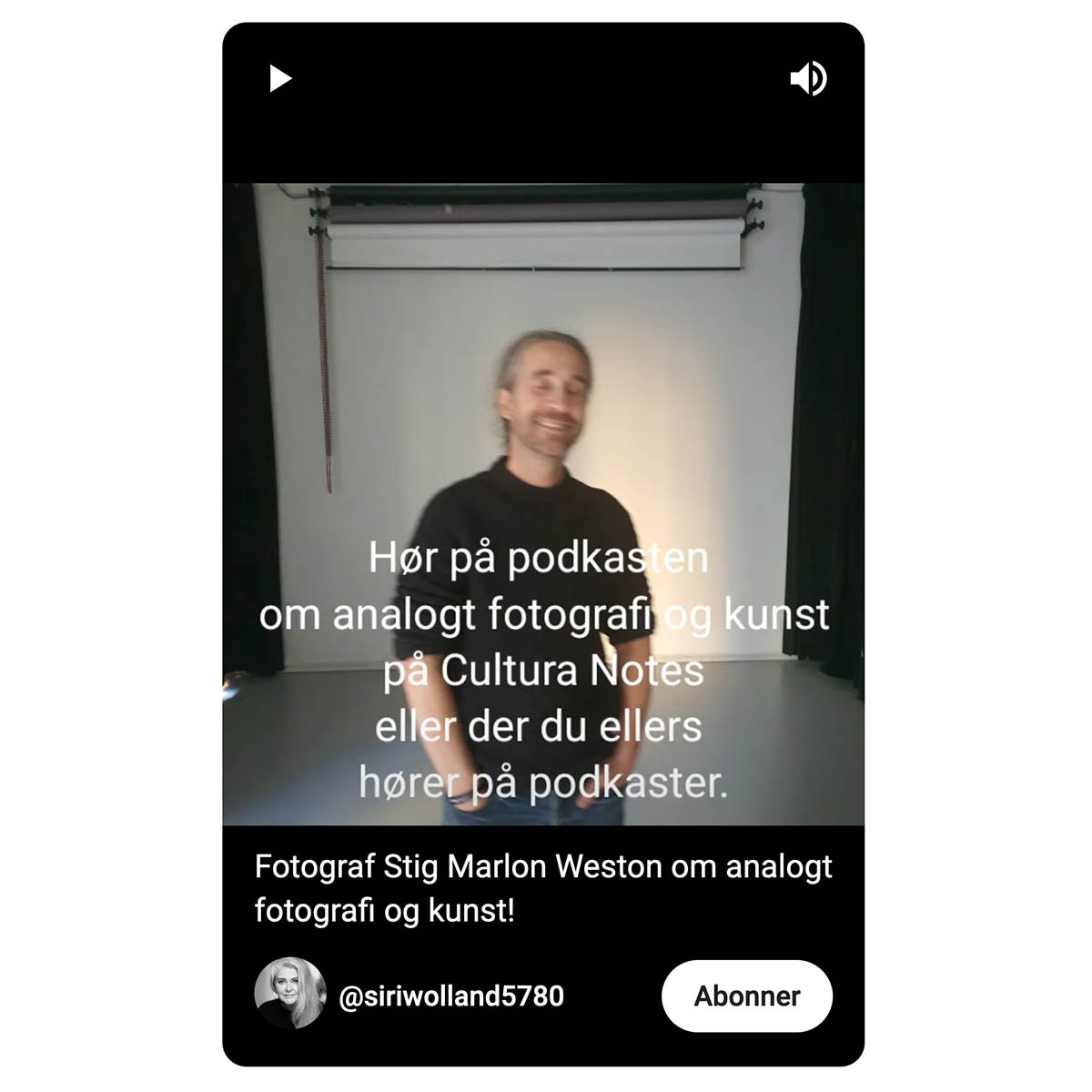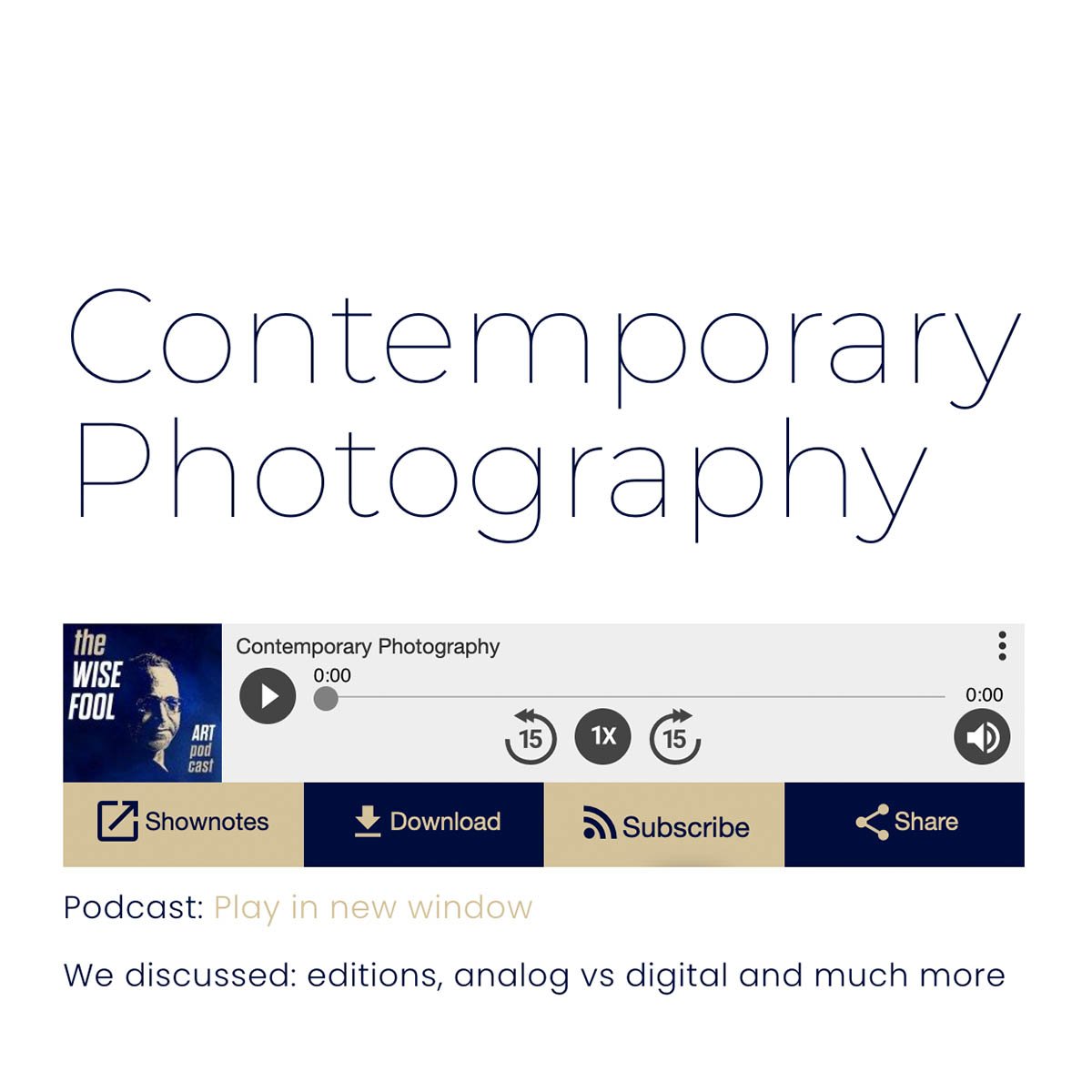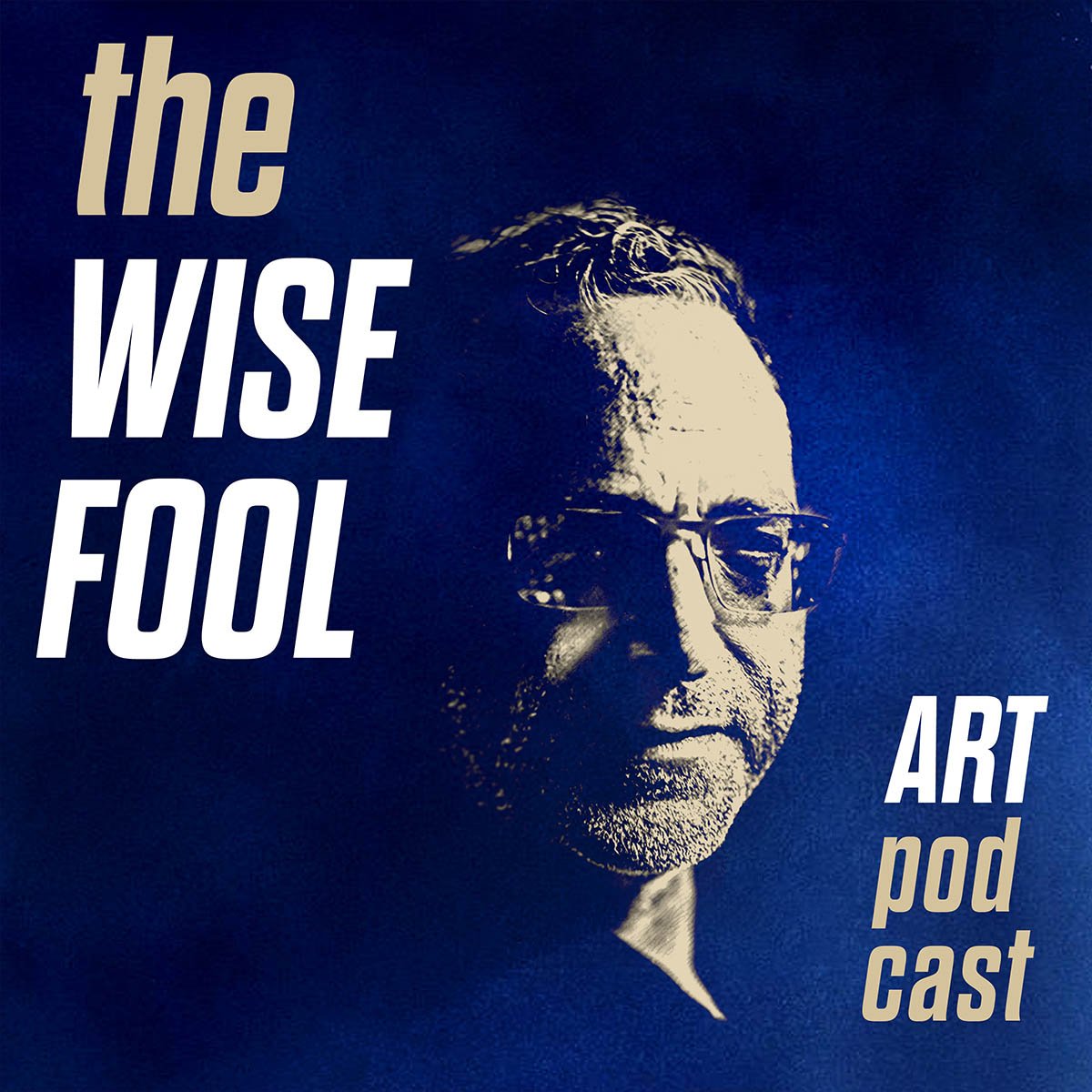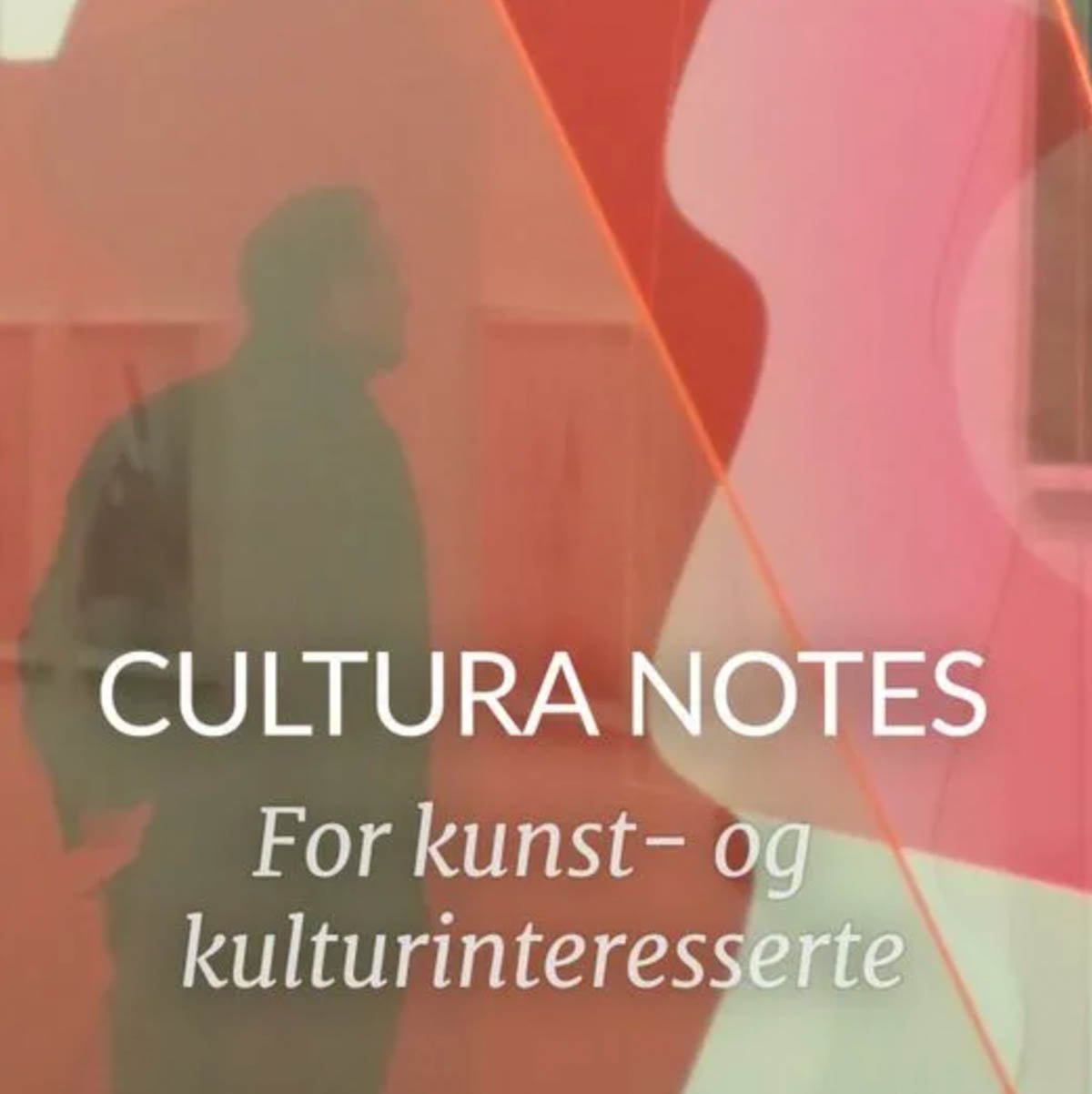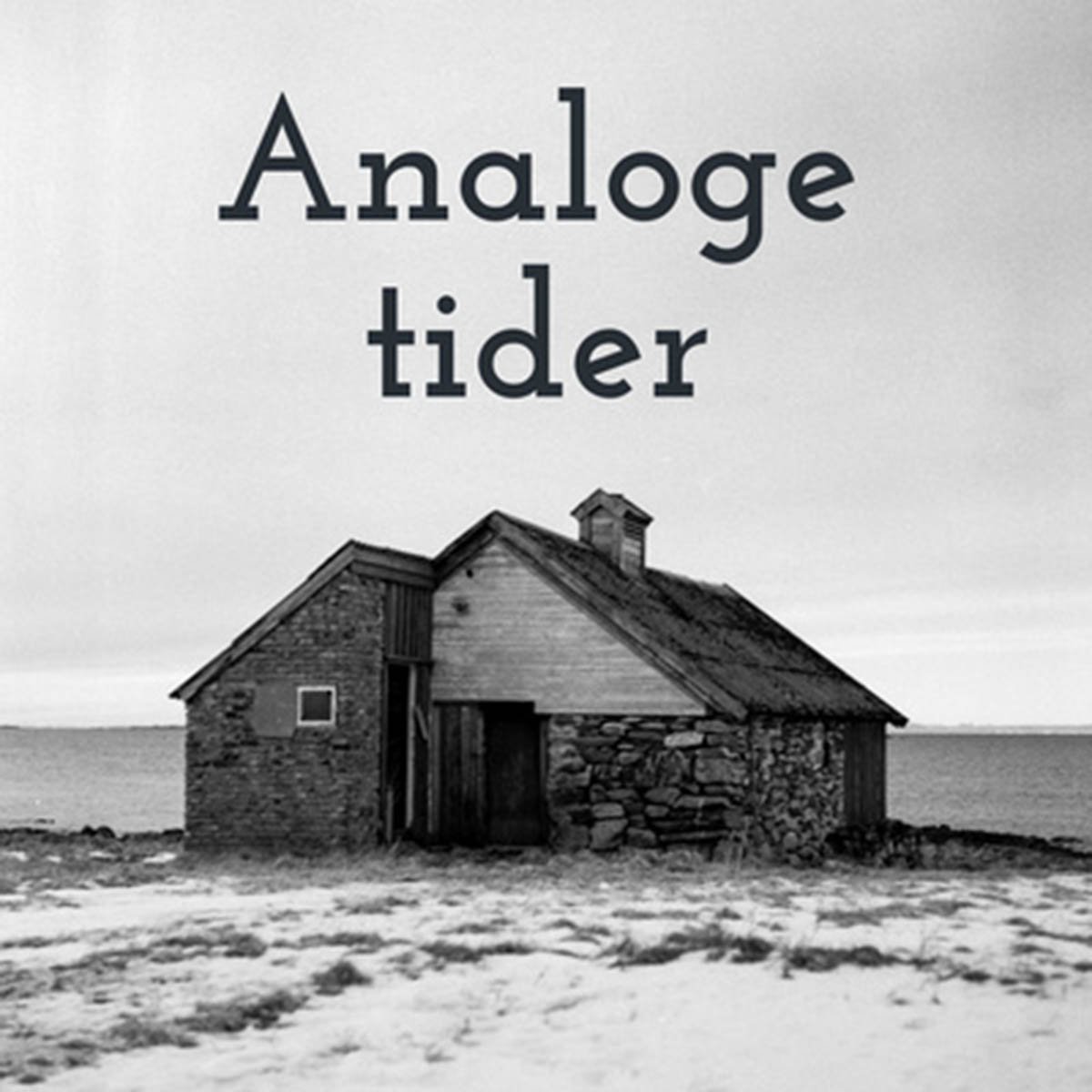Jeg har utgitt meg for å være et godt intervjuobjekt i flere podkaster siste måneden.
The Wise Fool podkast drives av professor og fotograf Matthew Dols (US) for å ta en nærmere kikk på hvordan kunstverdenen fungerer.
Jeg deltok som en av tre fotografer i et panel om norske fotokunstnere og hvordan vi jobber i Norge.
I et intervju med Siri Wolland i Cultura Notes fikk vi en god samtale om hvordan man balanserer oppdragsfotografi med kunst og hvorfor analog foto er en viktig del av det nye samtidsfotografiet.
Og tilslutt fikk jeg et møte med den nye podkasten Analoge Tider som ledes av fotograf Svein Olav Humberset. Han møter andra fotograer som også jobber analogt of diskuterer alt rundt prosess, problemer og gleder ved det kjemiske fotografiet.
I have been pretending to be articulate in several podcast interviews the last month.
The Wise Fool podcast is run by professor and photographer Matthew Dols (US) and is designed to be a tool for him and the listener to look inside the workings of the art world. I was part of a small panel of Norwegian art photographers talking about how we make it work here and if we ever contemplate moving somewhere else. Of course we also discussed staples such as sales and survival, studio life and inspiration and more. But thinking about this question of location and home is one I find important because where you are affects what you make and also how you get to share your output afterwards.
For an interview with Cultura Notes I sat down for a face to face interview with journalist Siri Wolland and had a conversation on how to balance commercial and artistic careers and why analogue photography should be considered contemporary. Wolland is great at creating a relaxed atmosphere while still firing off questions that open up for a deeper dive into the philosophy behind the arts.
Lastly I found the new podcast Analoge Tider a real gem of engaged enthusiasm. The name translate to Analogue Times and photographer Svein Olav Humberset uses the podcast to meet up with other analogue photographers to share the love of the physical medium and process. After two failed attempts at recording we were done with obvious interview questions, and slipped right into an enthusiastic banter on how the darkroom is a safe space for joyful play and serious artistic exploration at the same time. With me building and running a community darkroom we got into nerdy topics like how the sink should be built and what kind of layout of the room works better, finding it hard to stop the conversation after the recording ended.
